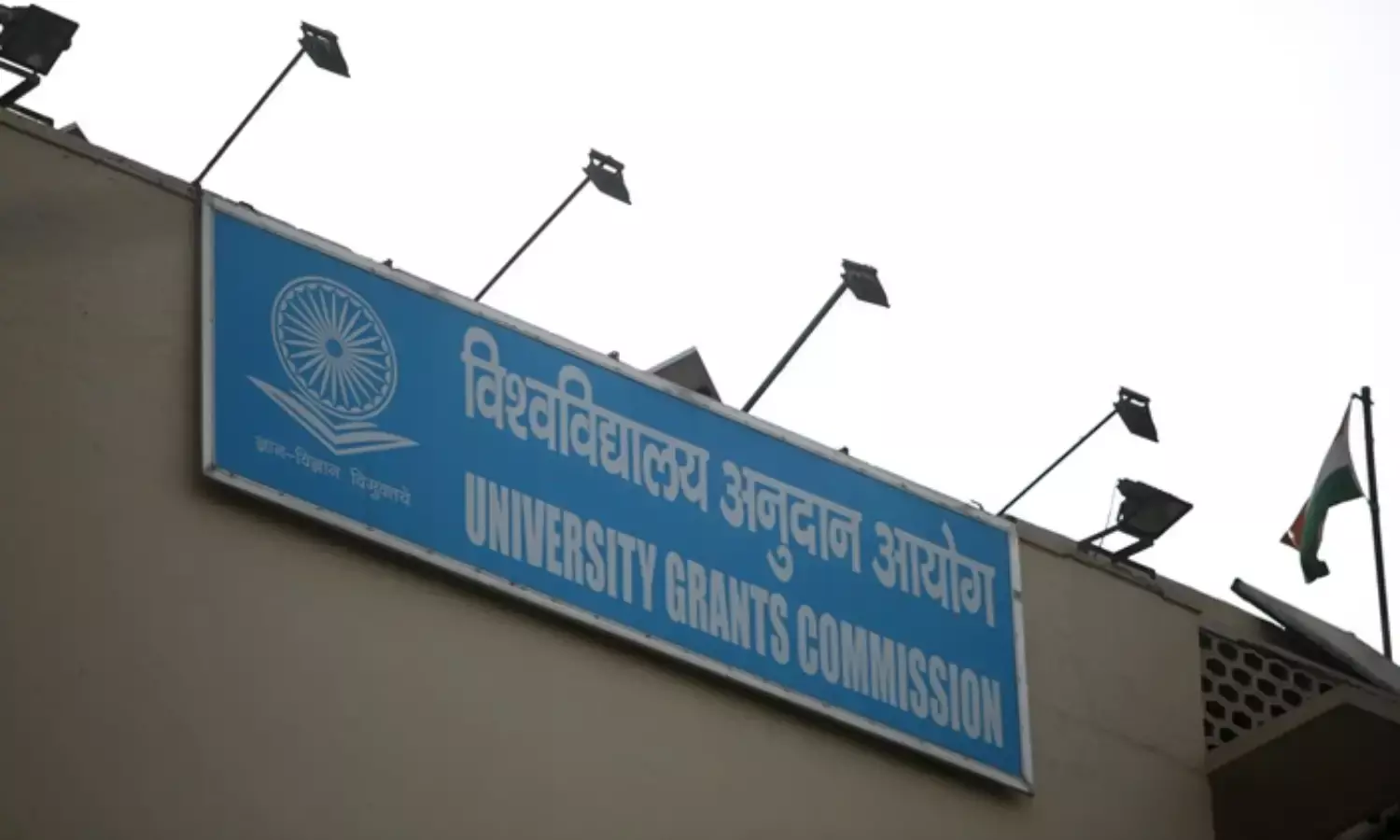Centre to Dismantle UGC, AIFUCTO Says Higher Education Under "Serious Threat"
Monetary grants to be the purview of proposed HECI

NEW DELHI: The Centre is set to replace the apex higher education regulatory body UGC (University Grants Commission) with a Higher Education Commission (HECI) that would focus ‘solely on academic matters and monetary grants’, according to a draft bill that is set to be tabled in the Parliament, in the the monsoon session.
On June 27, Minister of Human Resource Development (HRD), Prakash Javadekar took to Twitter to announce the introduction of the committee, that is set to replace the UGC Act, 1951.
https://twitter.com/PrakashJavdekar/status/1011887748708327425?ref_src=twsrc^tfw|twcamp^tweetembed|twterm^1011887748708327425&ref_url=https://www.thequint.com/news/india/centre-to-scrap-ugc-strips-regulator-of-funding-role
https://twitter.com/PrakashJavdekar/status/1011887750465769472?ref_src=twsrc^tfw|twcamp^tweetembed|twterm^1011887750465769472&ref_url=https://www.thequint.com/news/india/centre-to-scrap-ugc-strips-regulator-of-funding-role
https://twitter.com/PrakashJavdekar/status/1011889436647288832?ref_src=twsrc^tfw|twcamp^tweetembed|twterm^1011889436647288832&ref_url=https://www.thequint.com/news/india/centre-to-scrap-ugc-strips-regulator-of-funding-role
The Preamble of the HECI states, ‘Whereas the existing regulatory structure as reflected by the mandate given to University Grants Commission required redefinition based on the changing priorities of higher education and allow it’s growth,”
“The Commission shall have the power to grant authorization for starting of academic operations on the basis of their compliance with norms of academic quality. It will also have the powers to revoke authorization granting to a higher education institution where there is a case of wilful or continuous default in compliance with the norms,”according to the draft bill.
“There will be an Advisory Council to render advice to the Commission on matters concerning coordination and determination of standards in the country. This will be represented by the Chairpersons / Vice-Chairpersons of State Councils for Higher Education and chaired by the HRD Minister,”it further states.
The draft adds, “Less government and more governance, separation of grant functions, end of inspection raj, focus on academic quality, powers to enforce compliance to the academic quality standards and to order closure of sub-standard and bogus institutions are some of the highlights of the new act,”
In 2015, a committee had been set up to review the working of UGC, declaring, that it has ‘failed to fulfil its mandate but also has not been able to deal with emerging diverse complexities.’ The two volume report submitted during the tenureship of HRD Minister Smriti Irani, suggested a national eligibility test for admission to PhD and ‘doing away with 10 years as professor criteria’ for being eligible for the post of vice chancellors to Universities.
Critical of the overhaul of the UGC, the All India Federation of Universities and College Teachers’ Organisation (AIFUCTO) maintained,”‘Attempts were made to defame UGC through deliberate delays in giving approval to its many suggestions. Doing away with UGC would help government to move ahead with its policy of privatisation and bureaucratisation of higher education, thereby ridding itself of all financial liabilities towards public funding of education.
Thus a deliberate play was made to deprive eager and enthusiastic young students and researchers outside the ambit of higher education and develop rational outlook, thereby preventing all resistance towards anti people agenda of the fascist state. AIFUCTO notes with great concern that higher education in India is under greatest threat now with the central government making a desperate attempt to centralise the education system and regulate thought process of free thinking citizens of the country. This is the worst crisis we are facing and AIFUCTO appeals all its affiliates to launch an attack on the said move. AIFUCTO in principle is opposed to dismantling of UGC.’
‘This move will further centralise higher education. Educational institutions will now lose its autonomy and independence due to increased government interference. Also, it will affect institutions like JNU and HCU, because the government now can pick and choose which institution to fund or not’, said Assistant Professor, V. Lenin Kumar, MIT School of Governance, Maharashtra.
“All in all, the HECI Act will just sink higher education in this country. It’s really fitting that we should get this tohfa on the day that we commemorate the resistance against the Emergency, because it shows us what the RSS was doing all along — watching and learning! Enforcing obedience in universities is just one of the effects of this Act, it will entrench a regulatory system that will just liquidate otherwise all the investments in education that the Indian people have made through their taxes. The HECI Act must be opposed tooth and nail — time for huge mobilisations if we want to survive this hell.” says Professor Ayesha Kidwai, through a Facebook post.



